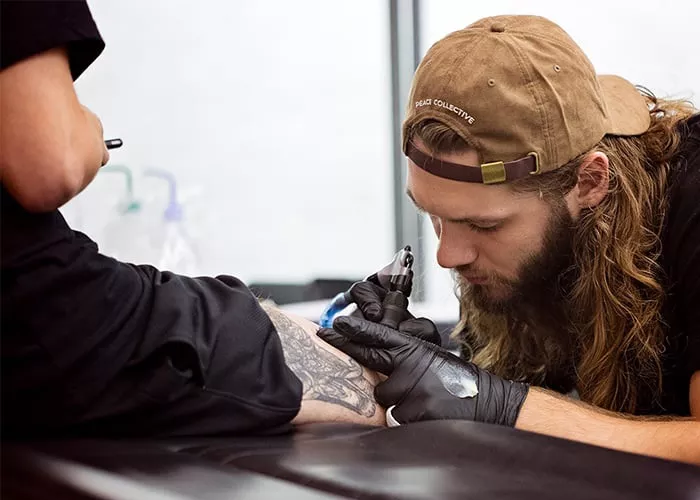Getting a tattoo is often an exhilarating experience—whether it’s a spontaneous decision or a long-awaited one. For many, the allure of permanent body art is irresistible. The long-term health impacts of tattoo ink are not fully understood, largely due to a lack of comprehensive studies. However, what is known is concerning. Many tattoo inks contain harmful chemicals, including carcinogens, heavy metals, and allergens. Once tattoo ink is deposited under the skin, it can migrate to the lymph nodes, where it may interfere with medical imaging, such as breast cancer screenings. Furthermore, exposure to lasers during tattoo removal or prolonged sunlight can cause some of these chemicals to break down into smaller, potentially carcinogenic molecules.
A recent study conducted by Binghamton University examined widely used tattoo inks in the U.S. and discovered that a significant number of them contain harmful ingredients. Nearly 90% of the inks in the sample failed to disclose their ingredients accurately, raising concerns about the transparency and safety of these products.
Despite the fact that around a third of U.S. adults have tattoos, and nearly a quarter have multiple tattoos, there is a significant lack of regulation regarding tattoo inks by the Food and Drug Administration (FDA). The FDA is responsible for ensuring the safety of various consumer products, including cosmetics and inks. While the agency’s authority was expanded under the Modernization of Cosmetics Regulation Act of 2022 (MoCRA) to recall harmful products, it has yet to exercise this power to address the carcinogens found in tattoo inks.
Additionally, the FDA has the authority to regulate tattoo pigments as “color additives,” requiring manufacturers to gain approval before their products are sold. However, the agency has not yet imposed such regulations on tattoo inks, allowing potentially harmful chemicals to remain in widespread use.
In contrast, the European Union has taken a more proactive approach by banning hazardous chemicals in tattoo inks, including those that are carcinogenic or can reduce fertility. In the EU, tattoo artists are still able to use safe alternatives, ensuring that public health is prioritized while still allowing the art form to thrive.
The lack of adequate regulation from the FDA extends beyond tattoo inks. The agency’s failure to oversee harmful chemicals in various consumer products raises broader concerns about its commitment to protecting public health. From food packaging to personal care products, the FDA has the legal authority to restrict or ban dangerous chemicals but has often chosen not to take action. This lack of accountability places the health of countless Americans at risk.
Organizations like Earthjustice are working to hold the FDA accountable. Through litigation and advocacy, Earthjustice has pushed for the ban of toxic chemicals such as phthalates in food packaging and has lobbied for legislation like New York’s Beauty Justice Act, which would eliminate harmful substances from cosmetics and personal care products.
The FDA must take more aggressive action to protect the public from harmful chemicals in everyday products. As the agency entrusted with safeguarding public health, it is imperative that the FDA fulfill its mission by ensuring that products like tattoo inks and cosmetics are free from substances that could pose long-term health risks.
Related topics:

